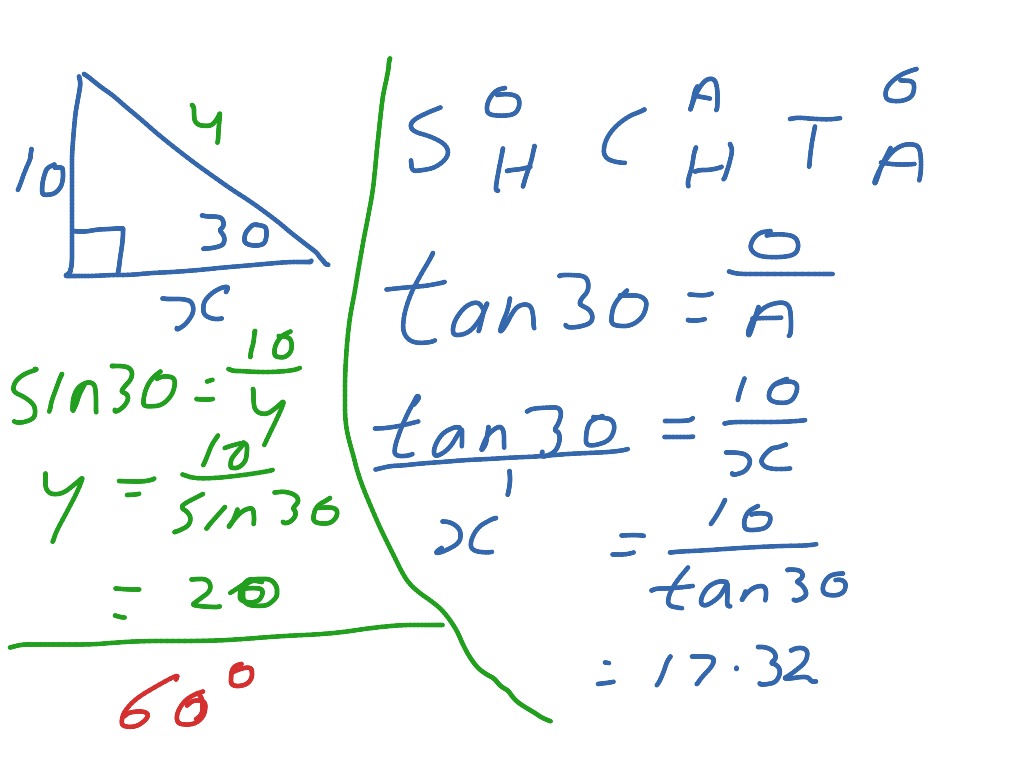

Each of these six trigonometric functions has a corresponding inverse function, and an analog among the hyperbolic functions. Their reciprocals are respectively the cosecant, the secant, and the cotangent, which are less used. The trigonometric functions most widely used in modern mathematics are the sine, the cosine, and the tangent. They are among the simplest periodic functions, and as such are also widely used for studying periodic phenomena through Fourier analysis. They are widely used in all sciences that are related to geometry, such as navigation, solid mechanics, celestial mechanics, geodesy, and many others. In mathematics, the trigonometric functions (also called circular functions, angle functions or goniometric functions ) are real functions which relate an angle of a right-angled triangle to ratios of two side lengths. See the Adaptation Statement for more information.Basis of trigonometry: if two right triangles have equal acute angles, they are similar, so their side lengths are proportional.

This chapter has been adapted from “Solve Applications: Sine, Cosine and Tangent Ratios” in Introductory Algebra by Izabela Mazur, which is under a CC BY 4.0 Licence. G is opposite, f is adjacent, and e is hypotenuse If the airplane traveled 200 kilometres, how high above the ground is it?

Round to four decimal places if necessary:įor the given triangles, find the sine, cosine and tangent of the θ. Use your calculator to find the given ratios. Label the sides of the triangle and find the hypotenuse, opposite and adjacent. If the reference angle in Question 2 is Z, find the opposite?.If the reference angle in Question 1 is B, Find the adjacent ?.Answer the question with a complete sentence.Check the answer by substituting it back into the ratio solved in step 5 and by making sure it makes sense in the context of the problem.Solve the ratio using good algebra techniques.Label what we are looking for by choosing a variable to represent it.Draw the right triangle and label the given parts. Read the problem and make sure all the words and ideas are understood.Problem-Solving Strategy for Trigonometry Applications.Three Basic Trigonometric Ratios: (Where θ is the measure of a reference angle measured in degrees.).The adjacent side is 8.06 Rounded to two decimal places Let angle D be our reference angle, d = 4 is the opposite side, f is the adjacent side, and e = 9 is the hypotenuse Draw the right triangle and label the given parts.Ī drawing is given. Read the problem and make sure all the words and ideas are understood. Answer the question with a complete sentence. Check the answer in the problem and by making sure it makes sense.ħ. Solve the ratio using good algebra techniques.Ħ. Label what we are looking for by choosing a variable to represent it.Ĥ. Angle A is our reference angle, a = 8 is the opposite side, b is the adjacent side, and c is the hypotenuse.ģ. Since the sum of angles in any triangle is 180°, the measure of angle B can be easy calculated.


 0 kommentar(er)
0 kommentar(er)
